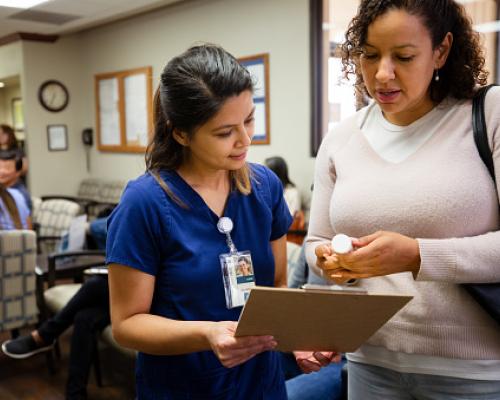
Overview of Rare Disease–Based Registries

Disease registries are databases that collect information about patients with a common disease or condition. Registries have the potential to generate high-quality “real-world data” that can complement more traditional sources of evidence, such as randomized clinical trials, to help inform a range of health care decision-making needs. For example, real-world data from disease registries can help improve understanding about the natural history of a disease and assess patient outcomes beyond just those patients who would be eligible for a clinical trial.
Rare diseases also have small patient numbers, which presents inherent challenges in conducting larger clinical trials. Health care decision-makers are increasingly recognizing the importance of using and bolstering disease registries to help address evidence gaps about the safety, clinical effectiveness, costs, and implementation of new and emerging therapies. Disease registries offer the potential to help reduce uncertainties within the evidence landscape of drugs for rare diseases and help improve access to promising therapies.
Activities
Canada’s Drug Agency is undertaking a series of activities that will help lay the foundation for improved generation of, and access to, real-world data from rare disease–based registries. A key aim of this work is to help generate fit-for-purpose decision-grade real-world evidence to better address regulatory, health technology assessment (HTA), and payer evidence gaps throughout the drug life cycle. We are taking several steps to achieve this:
- Developing an inventory of rare disease registries in Canada
- conducting a preliminary assessment of Canadian rare disease registries using the Registry Evaluation and Quality Standards Tool (REQueST) developed by the European Network for Health Technology Assessment (EUnetHTA)
- evaluating the quality and comprehensiveness of data within these registries
- working with registry owners to improve data quality and completeness, and to support registries that generate high-quality evidence that can be used for health care decision-making across the life cycle of drugs.
- Establishing registry standards and best practices
- establishing data standards and guidelines for rare disease registries to ensure that the data in the registries can effectively serve regulatory, HTA, and life cycle management purposes
- producing a scoping review of the recommendations and guidance for improving the quality of rare disease registries
- establishing a Roadmap for Linking Registry Data With Administrative Health Services Data to Support Evidence-Informed Decision-Making. The linkage and integration of registry data with administrative health services data is an important initiative to support efforts for improved evidence generation and value of real-world data. With the support of our health system partners, we have developed best practices to enable patient registries in Canada to navigate the process of linkage with administrative health services data.
- Testing existing registries for HTA readiness
- Testing the readiness and capabilities of existing rare disease registries in the context of HTAs. This will help identify any barriers or limitations in data readiness and comprehensiveness, and the ability to report on relevant outcomes.
Our goal is to ensure data collected from people with rare diseases in Canada can be fully used to assess treatments and make evidence-informed decisions.


Advisory Group on Rare Disease–Based Registries

Our work to support and enhance the rare disease registry landscape in Canada is built on engaging, consulting, and learning from experts across health systems. In 2024, we formed the Rare Disease Registries Advisory Group, which consists of external experts who provide strategic advice, share insights, and offer guidance to help inform our portfolio of work. This time-limited advisory group includes people with lived experience, clinicians, researchers, industry experts, and experts in rare disease registries and their development. Members of this advisory group share advice and input, but do not provide formal recommendations on our work. We also consult with our other established expert committees.
The Rare Disease Registries Advisory Group is not seeking further nominations at this time.

